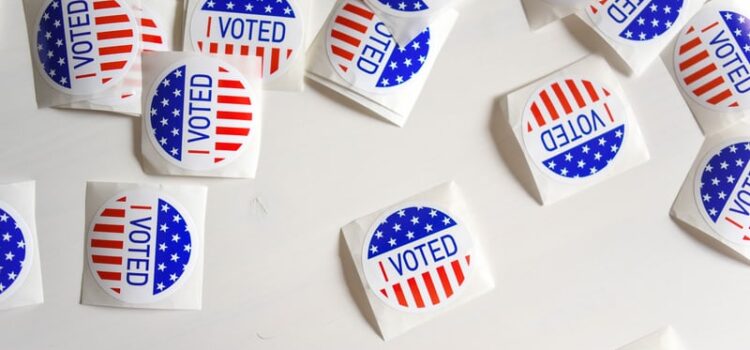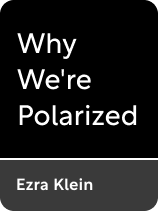

This article is an excerpt from the Shortform book guide to "Why We're Polarized" by Ezra Klein. Shortform has the world's best summaries and analyses of books you should be reading.
Like this article? Sign up for a free trial here.
Is there a connection between political polarization and the way America elects its officials? If so, what should be done about it?
Progressive journalist, political commentator, and podcaster Ezra Klein says that, if done right, election reform can break up the push toward growing polarization. He proposes the replacement of the Electoral College by a direct popular vote for the presidency as well as the creation of multi-member districts.
Keep reading to understand both of these proposals and what Klein hopes they’ll accomplish.
Reduce Polarization Through Election Reform
Klein recommends two election reforms that he argues will reduce politicians’ incentives to stoke division and resentment by forcing them to compete on a more level playing field. Let’s take a look at each one.
Replace the Electoral College
Klein proposes replacing the Electoral College with a direct popular election for the presidency.
According to Klein, the mechanics of the Electoral College create a built-in advantage for low-population, rural, and predominantly white states over high-population, urban, and ethnically diverse states—effectively boosting Republicans while handicapping Democrats. And, Klein writes, in two of the last six presidential elections, the anti-democratic flaws of the Electoral College have resulted in the Republican loser of the popular vote winning the presidency—George W. Bush in 2000 and Donald Trump in 2016.
Klein argues that replacing this system with a direct popular election for the presidency would deny Republicans their automatic advantage in presidential elections and force them to compete on a more level playing field. If they were forced to appeal to a majority of all voters instead of just their partisan base, Republicans would have far less incentive to engage in a polarizing style of politics. Instead, they would be compelled to reach out to and win over more middle-of-the-road voters and voters who don’t already share their ideology.
(Shortform note: Academics have backed up Klein’s argument that the Electoral College affords Republicans a significant advantage. One team of researchers found that even in elections where the Republicans lost the popular vote by as much as three percentage points, they would still win a significant share of such elections. And one Democratic Party analyst argues that Democrats would need to win 52% of the vote just to have an even chance of winning the Electoral College.)
Create Multi-Member Districts
Another election reform Klein proposes is creating multi-member districts, in which more than one candidate can win a seat. This would be a significant departure from the US’s current system of winner-take-all, single-member districts.
Under the current system, each district only has one representative. And because there’s only one seat to be won, voters have a strong incentive to gravitate toward one of the two major parties—instead of voting for a third-party candidate, which would split the vote and allow the rival party to win.
Imagine an election where there’s a right-wing Party A, a center-left Party B, and a further left Party C. If Party A receives 10,000 votes, Party B receives 9,999 votes, and Party C receives 8,000 votes, Party A wins the seat—Party B and Party C get nothing for coming in second and third place, even if they won a combined majority of the votes. Because the two left-wing parties split their votes, the right-wing party wins with a minority of the total vote. Klein writes that this dynamic effectively rewards and reinforces the major parties’ tactics of unending partisan rhetoric and polarization: They know that their voters won’t abandon them or vote third party for fear of throwing the election to the rival party.
The process, however, would be different in a multi-member district, observes Klein. Multi-member districts would reduce the incentive for partisanship and polarization. If, for example, each district had five members—that is, the top five vote-getters earn a seat—voters would have more freedom to vote for the candidate they liked the best, since they wouldn’t have to worry about splitting the vote and inadvertently electing their least-preferred candidate.
| Duverger’s Law and the Two-Party System Klein’s argument about the polarizing tendencies of simple-plurality, single member-district electoral systems has actually been known by political scientists for decades. In 1954, the French political scientist Maurice Duverger hypothesized that such electoral setups favor the creation of a two‐party system. The rationale behind Duverger’s law is that, over time, politicians and voters will conclude that it’s futile to have multiple parties competing at the national level. This is because minor parties will have no chance of winning any seats if their support is too broadly dispersed across the country and not strategically concentrated within electoral districts where they can win majorities. Thus, candidates and voters come to realize that it’s more efficient to pool their support into one of two major parties, each of which stands a plausible chance of winning a majority of voters in each district. However, Duverger’s law isn’t ironclad. For example, Austria and Germany both have systems of proportional representation, in which seats are allocated to parties based on the percentage of the national popular vote they receive (above a certain threshold). But while these systems tend to foster multiparty democracy, both Austria and Germany have political systems that still consolidate around a small handful of major parties. |

———End of Preview———
Like what you just read? Read the rest of the world's best book summary and analysis of Ezra Klein's "Why We're Polarized" at Shortform.
Here's what you'll find in our full Why We're Polarized summary:
- Why bipartisan cooperation is becoming increasingly difficult in the US
- The origins of modern political polarization and its impacts on the parties
- Ideas for how we might depolarize our politics






